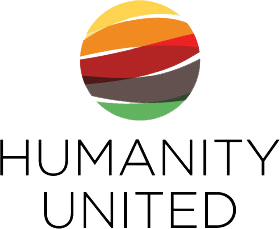Help Wanted
Fair, Safe, and Legal Working Conditions Begin with Hiring.
Migrant workers all around the world make the products we buy and harvest the food we eat.
These migrants leave home for jobs that can help them achieve a better life, or simply allow them to feed their family. Almost all of our products – clothes, shoes, computers, toys, furniture and food – involve a supply chain that employs migrant workers. Migrants provide the flexible workforce that keeps our just-in-time global economy humming.
Workers will go to great lengths to snag promising jobs, no matter where they are located. Often workers become indebted to middlemen – labor recruiters and moneylenders – whose practices can be exploitative and illegal and it becomes difficult or impossible to come out on top.
Our research showed us that:
- The job probably won’t pay what the recruiter promised;
- They don’t often know about the compound interest on their debt, which increases every month;
- There are illegal wage deductions and unexpected fees;
- Their passports may be taken away so that they can’t complain or flee;
- Their work visas will tie them to their employer, giving them no other alternative way to dig themselves out of debt;
- What they also don’t know is that they may end up for months – even years — in slave-like conditions or debt bondage.
How do we end this practice? Verité’s Help Wanted initiative begins with fair hiring worldwide.
Our Help Wanted Primer articulates the risk to multinational companies of forced labor and resulting debt-bondage caused by labor recruitment, and identifies the places within a company’s sourcing practices where recruiters present a reputational and legal liability.
Use this report to identify the needed changes in corporate practices and ways that brands and their suppliers can take action.
Download the report in English | Français | عربي | Español | हिन्दी | Português
The Fair Hiring Toolkit:
To view content in another language, view Help Wanted in a Google Chrome browser then right click and select to “translate to” your language of choice.
For Brands
Framework for Action: What Can Brands Do? >>
1. Improving Codes of Conduct and Company Policies >>
2. Raising Awareness and Building Capacity >>
3. Strengthening Assessments & Social Audits >>
4. Taking Corrective Action & Developing Systems Improvement Plans >>
5. Reporting & Transparency >>
6. Multi-Stakeholder & Multi-Brand Engagement >>
7. Public Policy Advocacy >>
For Suppliers
Framework for Action: What Can Suppliers Do? >>
1. Improving Codes of Conduct & Company Policies >>
2. Raising Awareness & Building Capacity >>
3. Screening & Evaluating Labor Recruiters >>
4. Managing Labor Recruiters & Monitoring for Ethical Recruitment & Hiring >>
5. Ensuring Good Practice in Human Resources Management >>
6. Establishing Effective Grievance Mechanisms & Protection for Whistleblowers >>
7. Taking Corrective Action & Developing Systems Improvement >>
